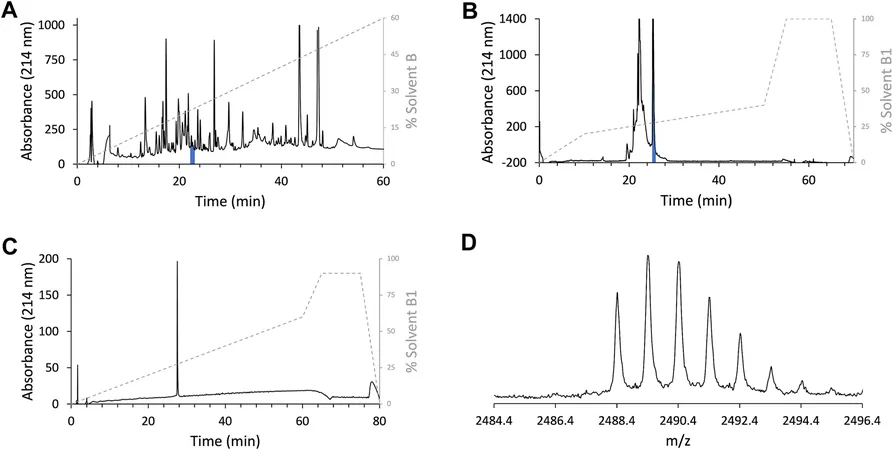
Breakthrough Snail Study Reveals Promising AI Future in Biological Research!
2024-11-19
Author: Li
Breakthrough Snail Study Reveals Promising AI Future in Biological Research!
A groundbreaking study from James Cook University (JCU) reveals an exciting potential for artificial intelligence (AI) to transform biological research, particularly by examining the venom of cone snails. Despite mixed results, the study showcases significant advancements in utilizing technology to unravel complex biological structures.
Led by Professor Norelle Daly of JCU's Australian Institute of Tropical Health and Medicine, along with Dr. David Wilson from the Advanced Analytical Center and Ph.D. student Tiziano Raffaelli, this research, now featured in the esteemed Journal of Biological Chemistry, delves into how AI can enhance our understanding of venom peptides from cone snails—marine creatures notorious for their deadly venom capable of paralyzing prey almost instantly and posing risks to humans.
The researchers focused on assessing the capabilities of the AI tool AlphaFold to predict the structure of a specific venom peptide. “AlphaFold was able to predict the overall structure of the peptide, but it struggled with accurately modeling how stabilizing bonds are formed. This highlights that while AI software has made impressive advancements in predicting larger protein structures, smaller peptides continue to pose challenges,” explained Professor Daly.
Despite these hurdles, Daly is optimistic about the role of AI in structural biology, particularly in light of the recent 2024 Nobel Prize in Chemistry awarded to Demis Hassabis and John Jumper for developing AlphaFold. “The potential of AI for structural prediction in science is incredibly thrilling and promising. Although we are not at a stage where AI can completely replace experimental structural biology, studies like this are vital in paving the way for future advancements,” she emphasized.
The current methods for determining peptide structures are labor-intensive, costly, and reliant on specialized techniques such as crystallography and NMR spectroscopy. “If we can refine AI's capacity to predict these structures accurately, we could significantly expedite the identification and development of innovative therapeutics,” Professor Daly asserted.
This study is more than just an academic exercise; it indicates a transformative shift in how biological research might progress in the near future. The continued evolution of AI tools brings hope that we could one day unlock the secrets of nature’s most complex molecules faster than ever before. Could this be the beginning of a new era in biomedicine? Keep an eye on this fascinating intersection of technology and biology!

 Brasil (PT)
Brasil (PT)
 Canada (EN)
Canada (EN)
 Chile (ES)
Chile (ES)
 España (ES)
España (ES)
 France (FR)
France (FR)
 Hong Kong (EN)
Hong Kong (EN)
 Italia (IT)
Italia (IT)
 日本 (JA)
日本 (JA)
 Magyarország (HU)
Magyarország (HU)
 Norge (NO)
Norge (NO)
 Polska (PL)
Polska (PL)
 Schweiz (DE)
Schweiz (DE)
 Singapore (EN)
Singapore (EN)
 Sverige (SV)
Sverige (SV)
 Suomi (FI)
Suomi (FI)
 Türkiye (TR)
Türkiye (TR)